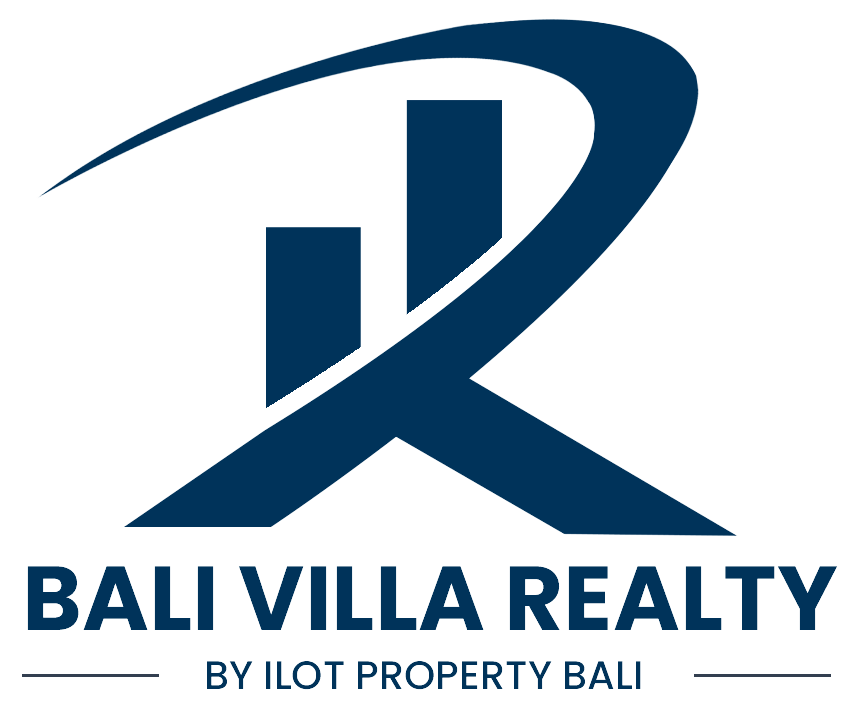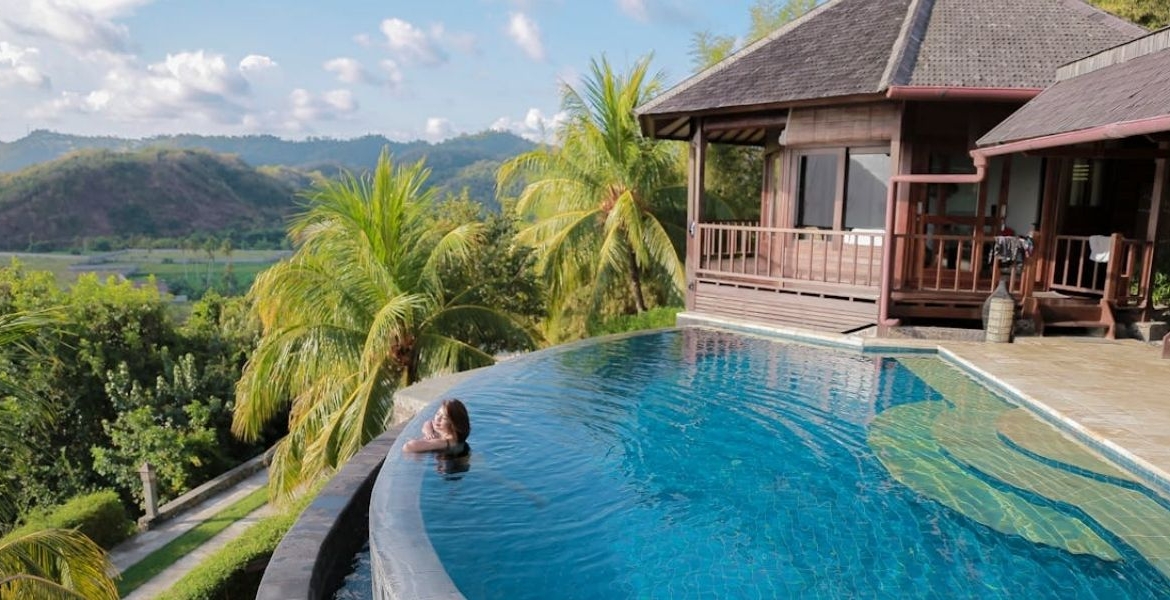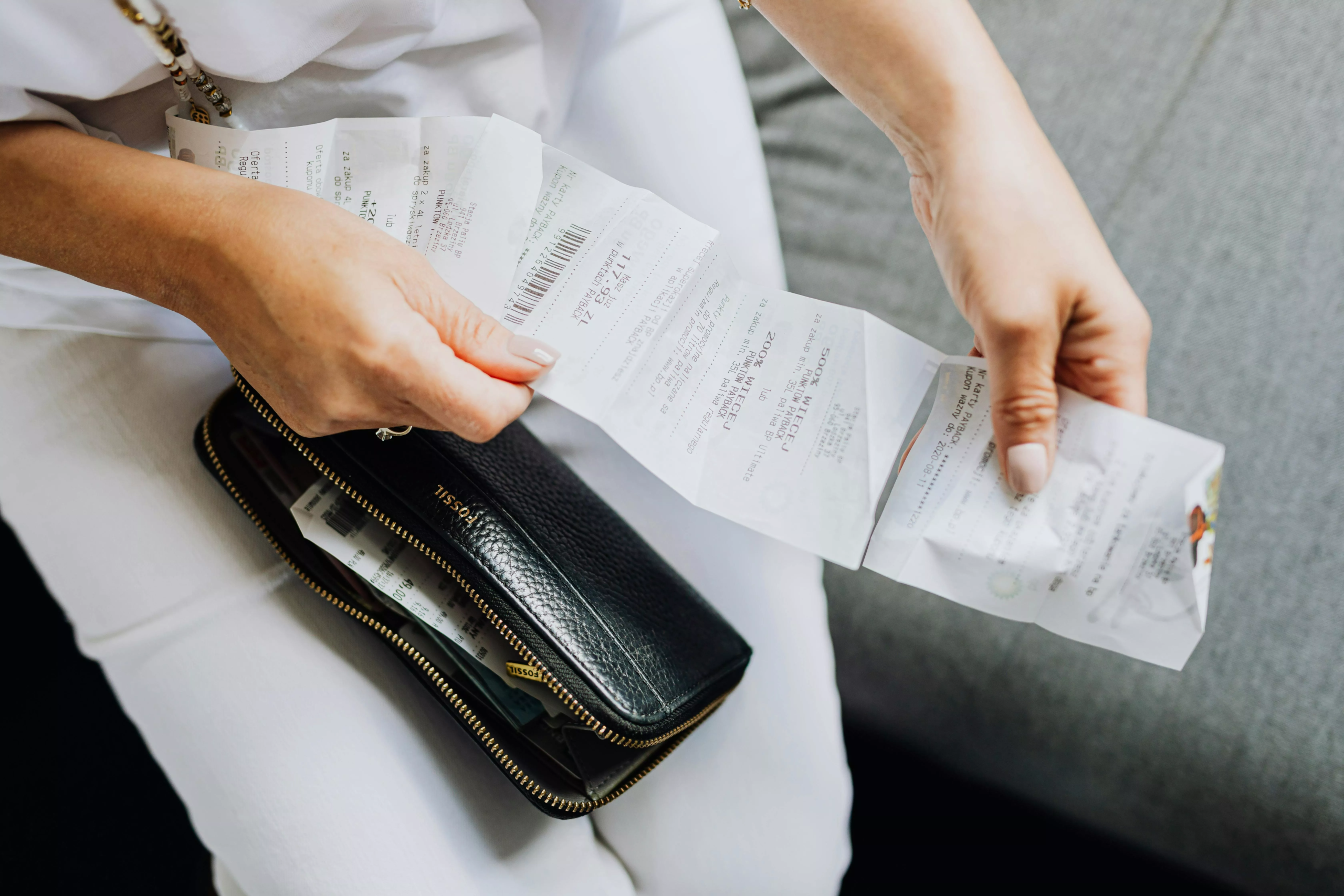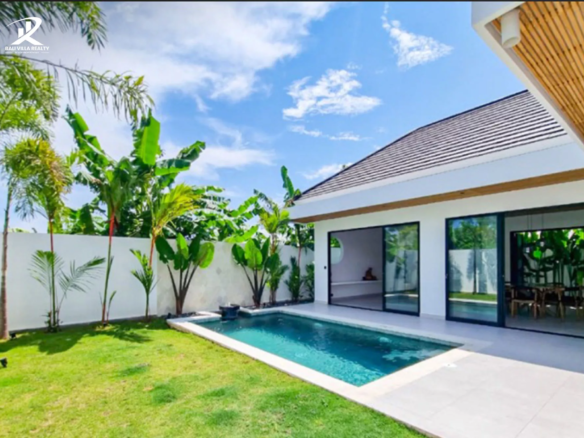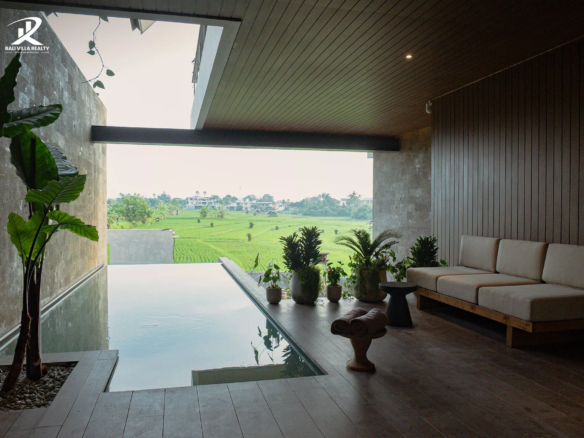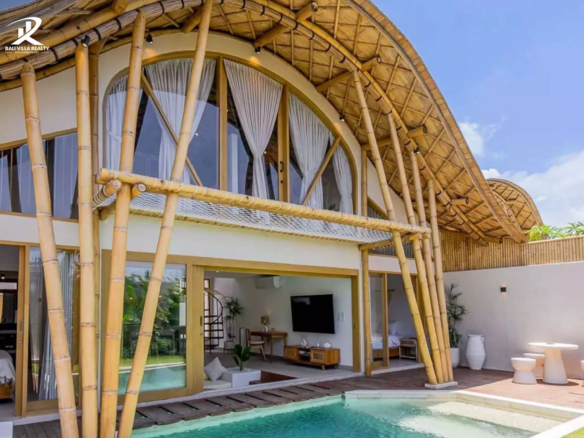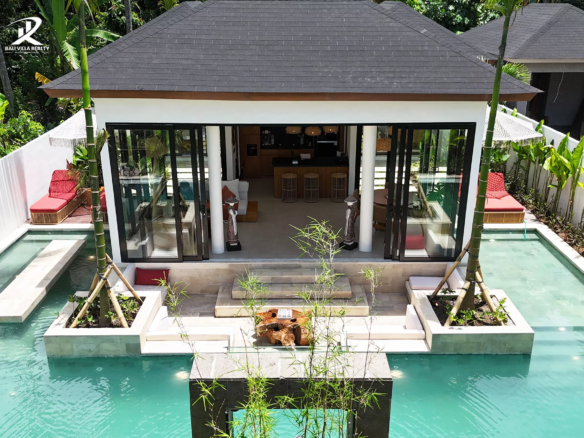Many expats are unsure about the right way to buy a villa in Bali. With so many guides giving different advice, you need to be careful and choose a legal, safe path.
Indonesia’s property laws are unique—especially for foreigners. You must use the correct ownership structures, get the right permits, and follow proper due-diligence steps to keep your investment legal.
In this guide, we’ll walk you through the real step-by-step process of buying property in Bali, the costs (including hidden costs) to expect, the key legal points, and practical tips to avoid common pitfalls.
Disclaimer
This article is for informational purposes only and explains the general legal process of buying property in Bali. Property prices and related costs are dynamic and may change over time.
We recommend consulting a qualified real estate expert before making any transaction to ensure you receive accurate and up-to-date information.
Key Takeaways
- Foreign Ownership Options: Foreigners cannot directly own freehold property in Bali but can invest legally through Leasehold (Hak Sewa), Right to Use (Hak Pakai), or Right to Build (HGB via PT PMA).
- Due Diligence is Essential: Always verify land titles, zoning, ownership, and legal documents before signing. Use certified notaries and lawyers for all transactions.
- Beyond the purchase price, expect 8–12% additional costs for legal fees, taxes, and permits. Leaseholders and freeholders have different tax obligations.
- Safe Investment Practices: Avoid nominee arrangements, understand your exit strategy, and work with licensed local agents to ensure your investment in Bali is legal, profitable, and secure.

1. Understand What Foreigners Can and Cannot Own
Buying property in Bali is allowed to everyone, but, foreigners can’t directly own land under their own name (freehold or "Hak Milik"). The legal ownership options for foreigners are:
Leasehold ("Hak Sewa")
You lease the land for 25–30 years (and often extendable). You can build, live in, or rent out your villa during that time. It works much like ownership, but the land returns to the owner when the lease ends.
More about Leasehold Ownership:
- What Investors Must Know About Leasehold Investment in Bali
- What Happens After the Lease Expires? Bali Leasehold Property Guide
- How Long Can You Really Lease in Bali? Unlock the Facts
- Freehold vs Leasehold: Which Ownership Type is Right for You?
Right to Build ("Hak Guna Bangunan")
If you set up a foreign-owned company (PT PMA), it can hold land under an HGB title. This allows you to develop or rent out property for up to 30 years, with extension rights. Perfect for business or long-term investment.
Right to Use ("Hak Pakai")
If you have a long-stay visa (KITAS/KITAP), you can hold Hak Pakai for 25 years, renewable. This is ideal if you just want a home to live in, not to rent out.
2. Choose the Right Property and Location
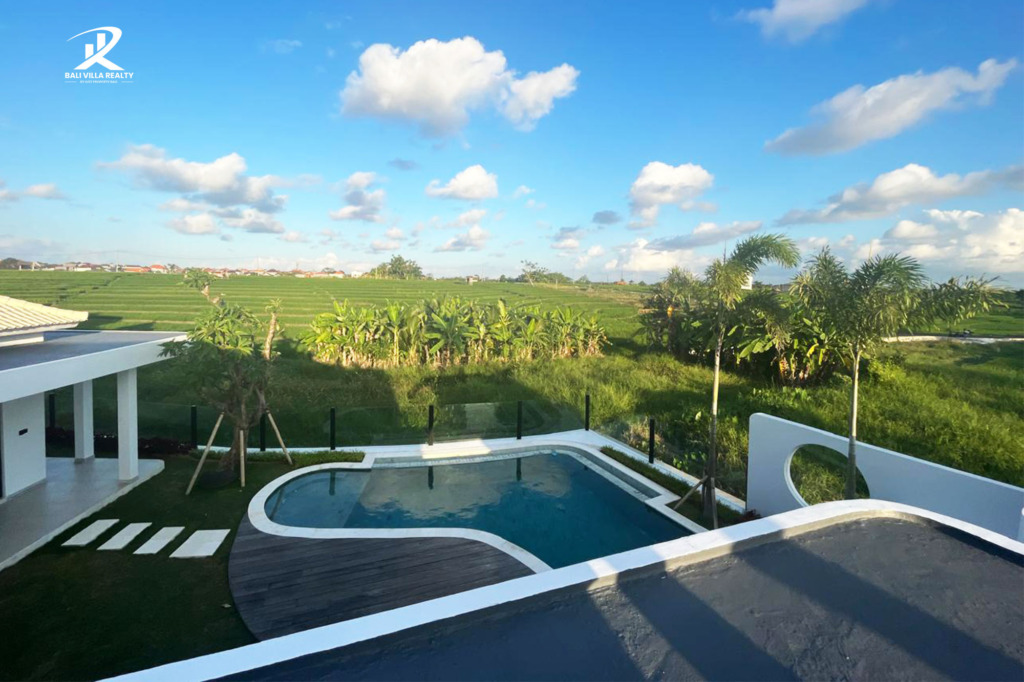
Choosing the right area for your villa investment in Bali is one of the most important decisions you’ll make — it directly affects your potential ROI (Return on Investment), occupancy rate, and overall lifestyle.
Here's how to choose the right area for your goals:
| Goal | Recommended Area | Reason |
|---|---|---|
| Short-term investment / Airbnb rentals | Canggu, Seminyak, Pererenan | High occupancy rates, busy with tourists, fast ROI. |
| Retreat or private villa | Ubud, Uluwatu, Umalas | Peaceful, scenic nature, perfect for wellness and balance. |
| Long-term business (villa operator or developer) | Kedungu, North Canggu, Jimbaran | Rising land prices, large potential for growth and expansion. |
| Retirement or second home | Sanur, Nusa Dua | Safe, fully developed area with established expat community. |
Tips:
- Make sure the land is in the correct zoning area.
- Check for road access, views (ocean or rice field), and proximity to the beach.
- Always work with a licensed local real estate agent to ensure you choose the right plot and avoid zoning issues.
More about Best Areas in Bali for Property Investment:
- Which Area Dominated Bali’s Real Estate Market?
- Where to Invest Next: Discover Bali’s New Hotspot for Rapid Growth
- How to Select the Best Locations to Invest in Bali

3. Conduct Proper Legal Due Diligence
Due diligence helps avoid future ownership conflicts or invalid transactions. Here's what to do before you sign anything:
- Verify that the seller is legally entitled to sell the property.
- Check for liens, mortgages, or active disputes.
- Ensure the land size and boundaries match the certificate.
- Confirm zoning classification (residential, tourism, green zone, etc.) since it determines whether you can build, rent out, or get property licenses in that area.
4. Secure a Proper Contract

Once everything is alright, it's time to sign a contract for your lease. Use a formal purchase or lease agreement, preferably drafted and witnessed by a local notary.
Here's what you should remember:
- Ensure the contract is balanced and doesn’t allow the seller to unilaterally cancel it.
- The initial offer forms the basis of your entire transaction (always review it carefully before signing!)
- Keep certified copies of all documents in both Bahasa Indonesia and English.
5. Register Your Ownership Rights
The notary will process registration with the Badan Pertanahan Nasional (BPN)—the National Land Office. You’ll receive the relevant certificate:
- Lease Agreement for Hak Sewa.
- Hak Pakai Certificate.
- HGB Certificate (for PT PMA).
This makes your rights official under Indonesian law.
6. Manage Taxes and Compliance
Owning property in Indonesia requires you to pay certain taxes. In general, here are the key points to note:
| Type | Who Pays | Tax / Fee | Rate / Amount | Notes |
|---|---|---|---|---|
| Freehold (Hak Milik) | Seller | Income Tax (PPh) | 2.5% | Based on the sale value under Indonesian property regulations. |
| Buyer | Transfer Tax (BPHTB) | 5% | Calculated on the government-assessed property value. | |
| Owner | Annual Property Tax (PBB) | 0.5% | Paid yearly based on assessed value. | |
| Leasehold (Hak Sewa) | Foreign Lessor (non-resident) | Lease Tax | 20% | Applies to foreigners without a KITAS permit. |
| Foreign Lessor (with KITAS) | Lease Tax | 10% | Reduced rate for KITAS holders. | |
| Buyer / Both Parties | Notary Fee | 0.5%–0.75% | Charged for contract and transaction processing. | |
| Buyer / Both Parties | Legal Service Fee | Varies | For drafting and reviewing legal documents. |
More about Buying Property in Bali:
- How Foreigners Can Buy Land in Bali: Steps, Rules, and Profits
- Buying Property in Bali as an Australian

Can a Foreigner Own Property in Bali?
This is the number one question we get! Technically, no, foreigners cannot directly own freehold property. However, foreigners can legally control and use property through the proper legal structures—leasehold, PT PMA, and Hak Pakai—as we've explained above.
You can find more details about foreign property ownership regulations in Indonesia here: Can Foreigners Buy Property in Bali? Full Legal Guide Explained.
How Much Money Do I Need to Buy a House in Bali?
Bali’s property market offers something for everyone if you are looking for a cozy tropical home or a luxury beachfront villa. Based on our data and observations, here’s a quick overview of the current average property price ranges:
- Entry-level villas (inland areas like Tabanan or North Bali): USD 100,000 – 200,000
- Mid-range villas (Canggu, Seminyak, Uluwatu): USD 250,000 – 600,000
- Luxury villas (beachfront or clifftop): USD 700,000 +
Don’t Forget the Extra Costs
When planning your Bali property budget, remember, the purchase price isn’t the only expense. You’ll want to add roughly 8–12% extra to cover legal, tax, and setup costs. Here's the detail:
| Category | Description | Typical Cost / Rate |
|---|---|---|
| Legal & Notary Fees | All property transactions must be handled by a licensed notary (PPAT). The notary conducts due diligence, drafts the sale or lease agreement, and registers ownership documents. | 1%–2.5% of the property price, depending on complexity. |
| Land & Building Tax (PBB) | Annual tax calculated based on land size and property value. It’s affordable for most villas and must be paid regularly to stay compliant. | Usually under USD 300 per year. |
| Permit & Registration Fees | Required when building or renovating. Includes permits like IMB (building permit) or PBG (building approval). Cost varies by property size and zoning. | 1%–3% of the property value. |
| Property Management & Setup | For those renting out their villa. Covers cleaning, staff, guest handling, and marketing. Setup and ongoing fees depend on services. | Setup: USD 1,000–2,000; Management: 15%–25% of rental income. |

Get a Customized Investment Plan in Bali
With over 15+ years in the market, here’s what we can do for you:
- Find the best location to invest in Bali.
- Reliable guidance on Bali’s property market and laws.
- Personalized strategy to maximize returns and meet your financial goals.
Do’s and Don’ts When Buying a Villa in Bali
Many foreign buyers fall into common traps because they rush the process or misunderstand local regulations. To help you make a safe and smart investment, here are the key do’s and don’ts you should know before purchasing property in Bali:
Do’s
- Check the land title carefully — make sure it’s leasehold, Hak Pakai, or HGB, and matches your ownership rights as a foreigner.
- Hire professionals — work with a licensed agent, notary (PPAT), and lawyer for due diligence and legal checks.
- Inspect the property in person — verify location, access, zoning, and building quality before signing anything.
- Plan your exit strategy — understand how to extend, resell, or rent your villa for the best ROI.
- Confirm zoning regulations — only residential or tourism zones allow villa construction and rentals.
Don’ts
- Don’t use a nominee arrangement — putting property under an Indonesian name risks losing your investment.
- Don’t skip legal due diligence — unresolved land issues or fake documents can cost you later.
- Don’t forget taxes and maintenance — include annual tax (PBB), staff, and upkeep costs in your budget.
- Don’t rush your purchase — take time to research the market and ensure all legal documents are valid.
More about Tips for Buying Villa in Bali:
- Why Bali Property Investments Fail? Overlooked Reasons You Lose Profit
- Is Bali a Safe Place to Live? 5 Tips for Risk-Free Villa Purchase in Bali
- New Regulations Are Changing How You Buy Property in Bali
- First-Time Investing in Bali Real Estate? 12 Tips You Need to Know
Is It Worth Buying a Villa in Bali?

Again, this is another most asked questions from investors—and for good reason. Bali has become one of the top property investment destinations in Asia, offering strong returns, consistent demand, and a lifestyle that’s hard to beat.
From a financial perspective, the numbers speak for themselves. Bali’s tourism keeps growing every year, driving high rental occupancy and solid ROI—often between 7% to 12% annually for well-located villas.
Areas like Canggu, Seminyak, Uluwatu, and Ubud attract both short-term holiday guests and long-term digital nomads, giving investors flexibility between passive income and personal use.
Beyond profits, Bali offers an unmatched quality of life—tropical weather, beautiful beaches, and a welcoming culture. Many investors also choose to live part-time in their villa while renting it out the rest of the year.
Further Reading:
- Bali vs. Thailand: Which Offers the Best Property Investment?
- Is Bali’s Real Estate Market at Risk of a Global Bubble?
- Best Exit Strategies for Your Bali Property Investment
Questions to Ask Before Buying Property in Bali
Before buying a property in Bali, asking the right questions helps you make a smarter and safer investment. Here’s what to consider:
- What’s the rental yield and ROI?
Knowing how much return you can expect from rent or resale value helps you calculate whether the investment is truly worth it. - How’s the demand in the area?
Some areas, like Canggu or Seminyak, attract more tourists and renters, meaning higher occupancy rates. Ask your agent for data on demand and rental performance. - How’s the neighborhood?
Check nearby facilities such as cafes, beaches, shops, and roads. A good neighborhood not only increases comfort but also boosts property value and rental potential. - Why is the owner selling?
This question can reveal hidden issues like legal disputes, declining rental income, or maintenance problems. - Is there any major renovation needed?
Inspect the building’s condition carefully. Renovation costs can add up fast, so it’s better to know upfront before signing the deal.
Conclusion
Buying property in Bali is exciting, but it’s also a big decision. With the right guidance, it can be one of the best investments you’ll ever make.
The good news? You can skip all the stress—from searching for the right property to handling due diligence and legal permits—by working with Bali Villa Realty. For over 15 years, we’ve helped hundreds of foreign buyers find and secure their dream villas in Bali legally, safely, and completely hassle-free.
Here’s how we help you:
- Personalized property search: We match you with villas that fit your lifestyle and budget.
- Legal guidance: Our certified lawyers and notaries make sure every document is accurate and compliant.
- Price transparency: No hidden fees, no surprises.
- After-sale support: From renovations to villa management, we stay with you even after the purchase.
- Local expertise: Our team understands Bali’s zoning laws, market trends, and top investment areas inside out.
Book your free, no-obligation consultation here to ask further questions or get recommendations on Bali villas for sale that suit you.
Want to start investing in Bali property?
Have a quick chat with our real estate experts for personalized advice on your Bali investments. No commitment required.
FAQ
Yes, you can. Even though you don’t own the land, you own the building and lease rights.
You can sell the remaining lease period to another buyer — the longer the lease left, the higher the resale value. Many investors profit by reselling villas with long leases or newly renovated properties
When your lease expires, the land ownership returns to the original landowner. However, most contracts include an extension clause (usually 20–30 more years). Just make sure it’s written clearly in your initial agreement.
Yes — but only if you do proper due diligence. Check that the developer owns the land legally, has the correct building permits (PBG/IMB), and provides a clear payment schedule.
Local banks usually don’t offer mortgages to foreigners. Most buyers pay in cash or through staged payments. If you set up a PT PMA, some Indonesian banks may consider business loans for property investment — but it requires a solid financial record and local legal setup.
Yes, a PT PMA (foreign-owned company) can legally buy and hold property in Indonesia under the Hak Guna Bangunan (Right to Build) title.
